NHS Wales: Swansea tops hospital waiting lists for knees, hips
- Published
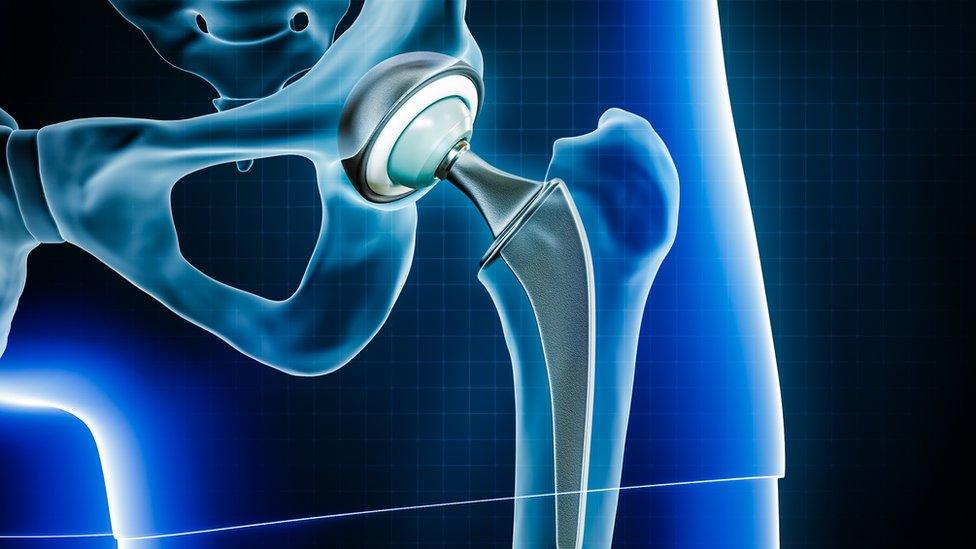
The average wait for hip surgery is 452 days in Wales
Swansea patients have the longest waits for both knee and hip replacements in Wales, according to new health data.
Digital Health and Care Wales figures show a local breakdown of hospital waiting times where numbers have risen for common procedures and the differences between areas.
Swansea Bay health board admits orthopaedic surgery wait times are "far longer than anyone wants".
The board's action plan includes a new surgery hub to reduce the backlog.
Swansea tops the list for hip replacements, with an average 668 days wait in 2021-22.
This is seven months longer than the Welsh average and more than twice as long as the average patient waits in Powys.
Latest monthly waiting times figures showed in March just over 96,500 patients were waiting for trauma and orthopaedic surgery across Wales - nearly half of them for longer than nine months.
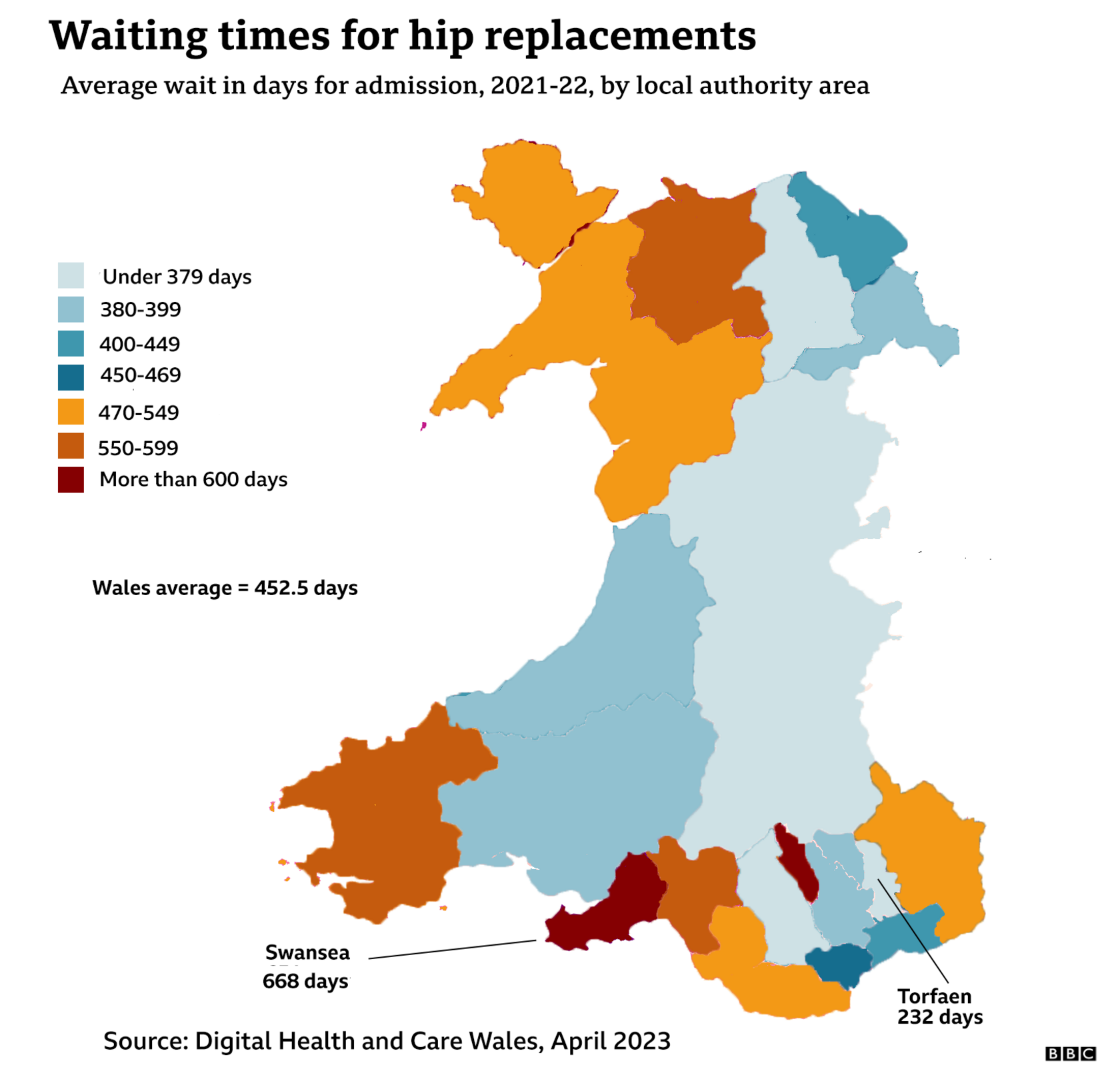
But these detailed figures show a period about a year ago when waiting times were at their worst, and reveal the impact locally and on those common procedures not seen in the monthly data.
Hip replacements
The average median wait in Wales was 452.5 days in 2021-22.
But in Swansea that rose to 668 days, followed by Merthyr, with a 618-day average wait.
The average wait at the lower end of the scale saw only Torfaen (232 days), Powys (312 days) along with Rhondda Cynon Taf and Denbighshire (both 330 days) less than a year.
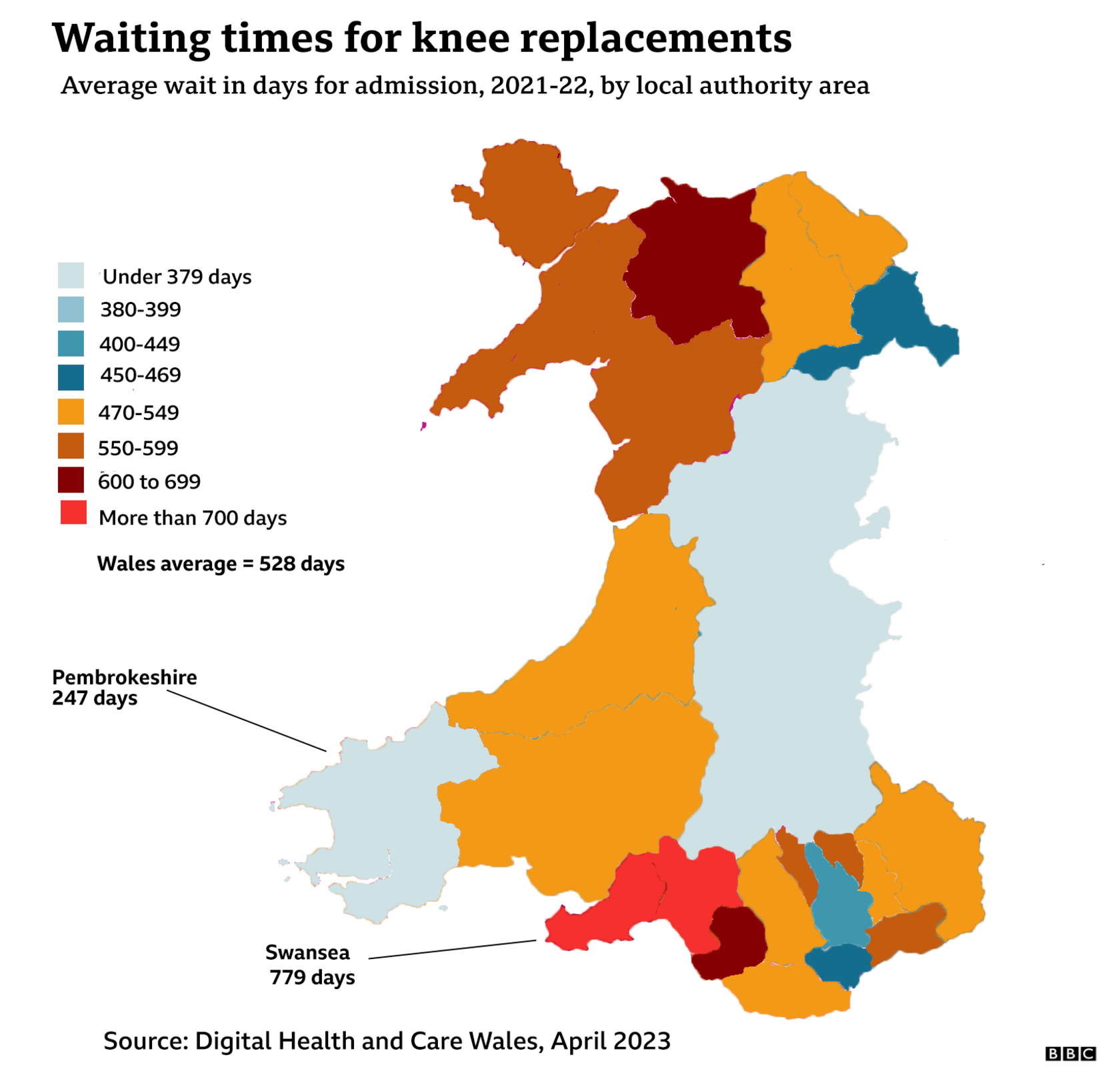
Knee replacements
Swansea tops the average wait for knee replacements, with 779 days - nearly four times longer than nine years ago.
The average wait in Wales is 528 days; the lowest is 247 days in Pembrokeshire.

All routine surgery
Swansea again has the longest average wait for all elective - that's non-emergency - surgery, 152 days, with the lowest in Pembrokeshire and Carmarthenshire - both under 90 days.
For hernias, Swansea is again the longest - with an average 581.5 days wait, four times longer than in Wrexham (128 days).
Ceredigion has the longest median waits for cataracts procedures - 516 days - it's 35 days in Caerphilly and Torfaen.
When it comes to tonsil operations, the longest waits are in north Wales, topped by Conwy (465.5 days on average). The lowest in Newport and Monmouthshire (24 and 26 days).
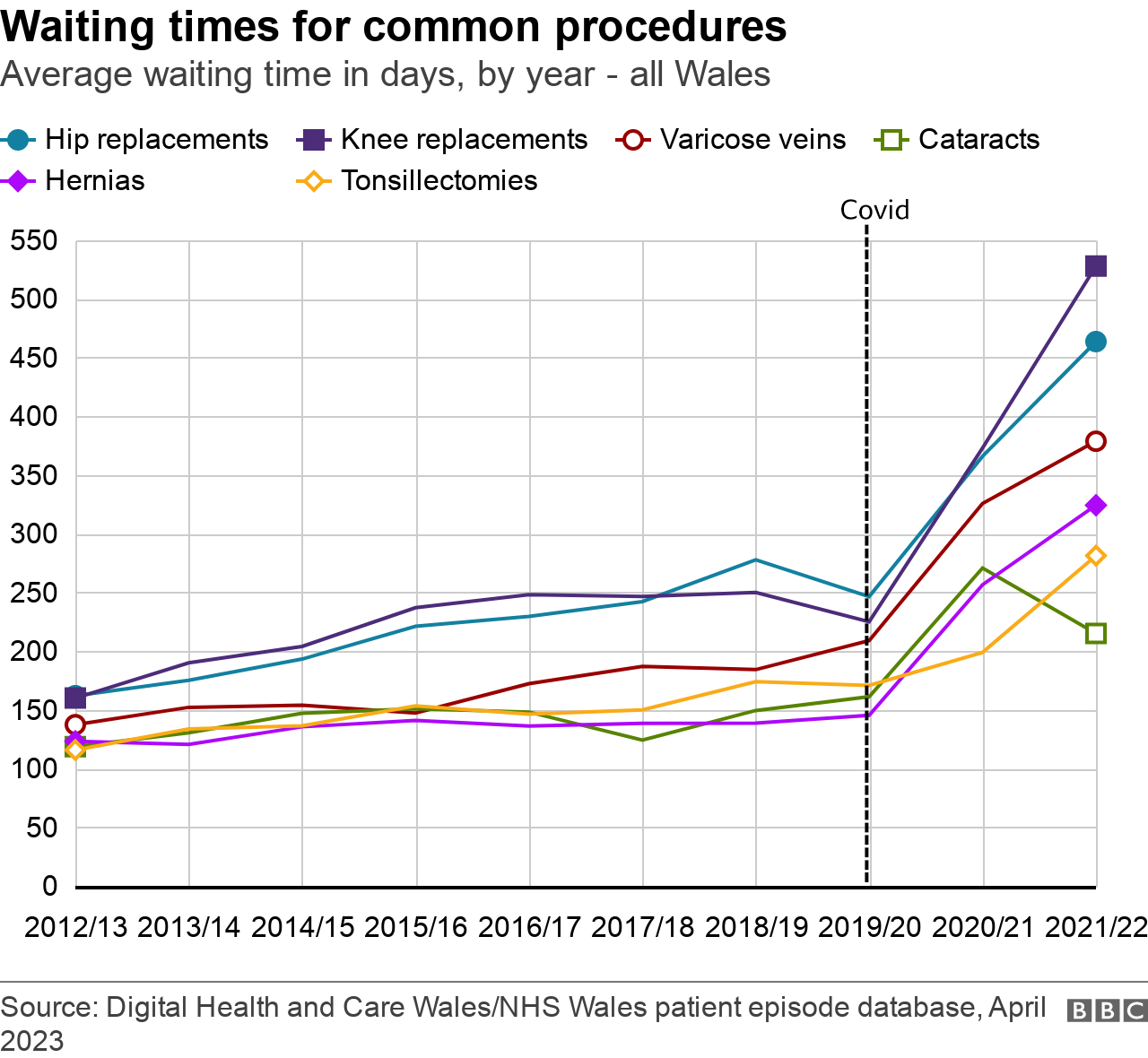
Impact of the pandemic
Restrictions during the pandemic, which in the first wave in particular hit routine treatments and created a backlog, have had an impact on how long people wait.
We can see how the average wait for hip replacements and revisions had nearly tripled compared to nine years ago, when it was 162 days.
The biggest spike across Wales has been in waits for knee replacements. In 2013, the average wait was 160 days, so it has now more than trebled.
But waits for cataract treatment have shown an improvement - after a new target for eye care for those at the highest risk was brought in before the pandemic.
In Swansea Bay, the monthly health board figures covering both Swansea and Neath Port Talbot, show how trauma and orthopaedic waiting lists continued to rise until last September, before peaking.
But in March, there were still more than 6,000 orthopaedic patients waiting a year or more and 2,500 waiting at least two years.
Swansea Bay health board said it was creating a orthopaedic and spinal surgery centre at Neath Port Talbot Hospital, to work through the backlog as quickly as possible.
Three more operating theatres costing £6.1m will be ready for use in June to give the hospital more capacity, as well as a ring-fencing of 10 beds at Morriston in Swansea for some of the longest waiting orthopaedic patients.
"These patients have more complex needs and must receive their operations in Morriston, as they may they need the input of our other specialist clinical services on the site, such as cardiac or renal," said a spokesman.
"They may also need an intensive care bed after their operation.
"Additional clinical support is also going into Neath Port Talbot Hospital to allow some of these complex needs orthopaedic patients to have their surgery there instead of Morriston."
The spokesman added: "The ultimate aim is to ensure that by April 2024, we are in a position where no-one has to wait more than two years for treatment.
"So, while it will take some time to catch up with the orthopaedic surgery backlog, the health board is doing everything possible to offer patients appointments as soon as possible."
The health board said it was also doing everything it could to bring down very long waits for all routine surgery.
"Orthopaedic patients with complex needs make up some of the longest waits, and the actions we are taking to deal with this are outlined above," the spokesperson added.
Related topics
- Published23 March 2023
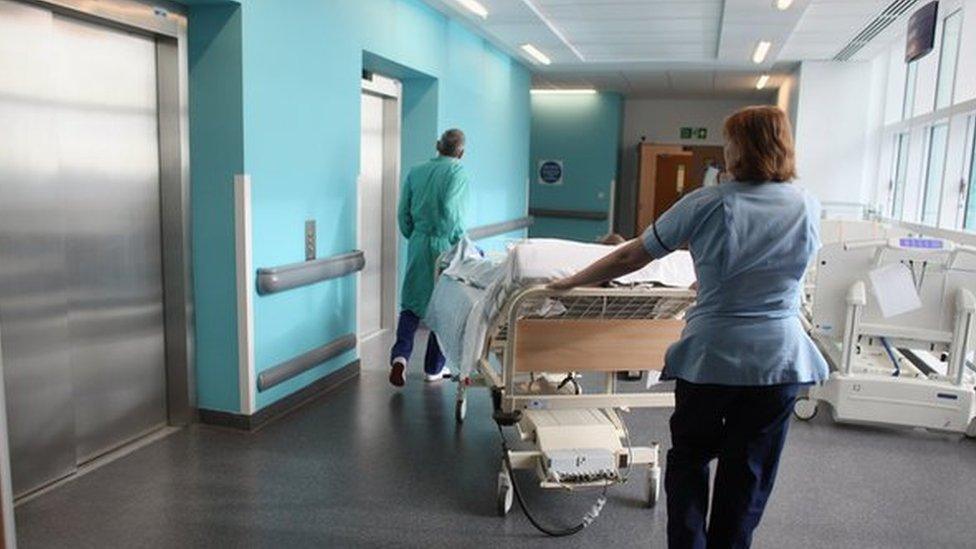
- Published14 March 2024
